When I do an initial intake with a new client, one of the questions I ask is “What would you like to learn about your ADHD?” It’s a pretty broad question, and most responses center around wanting to learn how to be more productive, or how to organize their lives.
At that point, I ask, “How much do you know about the brain science behind your ADHD?”
The majority say they don’t know anything, or very little. The word dopamine is bandied about a bit. And most surprisingly, when I ask if they would like to know more, most say, “I don’t really need to.”
Oh, but you do. You really, really do.
I’m not talking about becoming a neuropsychologist, or obtaining the knowledge that your psychiatrist has. But having a basic understanding of what physically makes your brain different, and how that impacts your life, is, in my opinion, essential.
First, it is vital to understand that there are physical differences between the ADHD brain and the neurotypical brain. It is not being lazy, or dumb, or anything behavioral. Comprehending that concept opens up an entire world for those of you who have been chastising yourselves about not trying harder. Or just not getting over it.
Would you berate yourself because you haven’t tried harder to see better, if you are a glasses wearer? Of course not. And just because this is a brain related disorder does not make it any less physical.
Repeat that to yourself a few times.
Secondly, I’m not sure how one can make a well informed decision about symptom management if they don’t understand what is causing the symptoms to begin with.
Let’s take an example from my running life. Let’s say I have a pain in my knee. In order to decide how to handle that, (Rest? Ice? New running shoes? Surgery?) I need to understand what may have happened that resulted in this pain before I can decide what I need to do next.
With ADHD, having a working comprehension of what is causing symptoms can help us to make solid treatment decisions. Knowing that my brain has lower dopamine might lead me to use medication to offset that. Understanding that the areas of my brain that control my emotional responses are different than those belonging to neurotypicals might convince me to try meditation to help with regulating my responses.
Deciding on one’s symptom management without having a basic understanding of what is causing the symptoms is like wearing a bikini on a sunny day…in February. You just don’t have all the facts to make an informed decision.
Finally, having a basic working knowledge of how your brain is different enables you to set up your life in ways that support you.
Dopamine low? Let’s make things more fun to get us going! Executive functions negatively impacted? Maybe an accountability buddy or group can help keep us on track. Fight or flight activated quickly? Perhaps I need to let my significant other know this can happen.
I don’t mean to imply that the ADHD brain is wrong, or broken, or just not effective. Not at all. But it IS different. And providing yourself with that knowledge is a gift of self awareness, and part of the ADHD toolbox for living your best life.

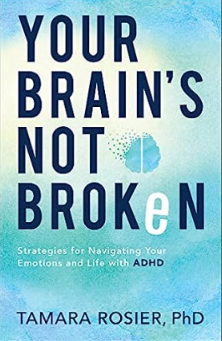 Your Brain’s Not Broken – Tamara Rosier
Your Brain’s Not Broken – Tamara Rosier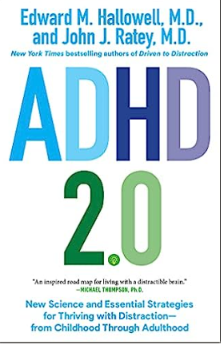
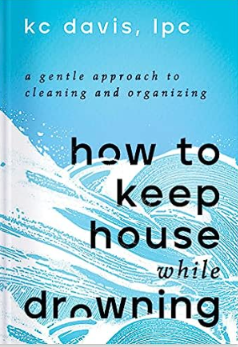 how to keep house while drowning – KC Davis
how to keep house while drowning – KC Davis 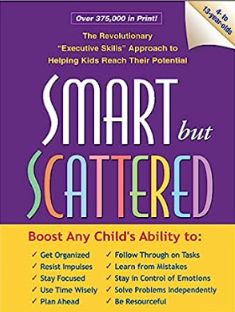
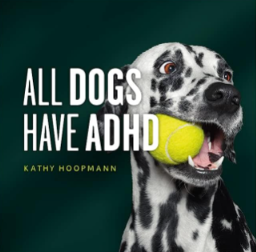 All Dogs Have ADHD – Kathy Hoopmann
All Dogs Have ADHD – Kathy Hoopmann